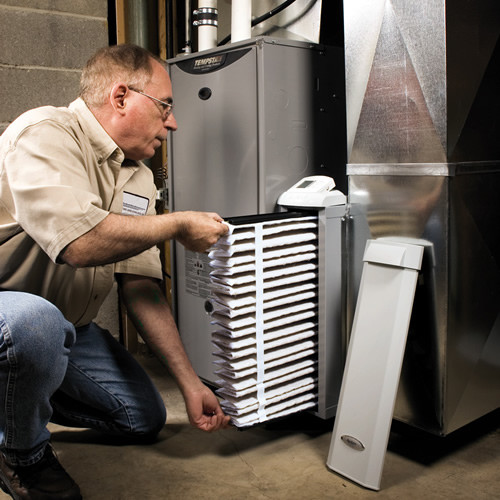
Everything you need to know about HVAC System Humidity
High humidity levels, both outside and within your structure, may impede the cooling operation of your HVAC system. Excessive Humidity may cause problems with your HVAC system, and this fast guide will show you how to solve those problems while also saving money on your energy bills.
Why Your HVAC Isn’t Controlling Humidity?
Below are some of the expected reasons
Issue of Speed Control
A single-speed or on/off air conditioner issues with HVAC humidity control, such as a large unit. Your heater will run at full blast until the temperature you requested is attained due to the inability to change the speed. After you have completed these steps, turn off your smartphone and restart the process. If you live in a location with a lot of Humidity, this becomes a problem. On the other hand, altering the alternating current (AC) speed allows a variety of speed alternatives. Use a modulating system instead of a linear technique for updating. Additionally, the machine’s several speed settings might help you save money on your air conditioning costs.
Issue of the Size of HVAC
The notion of a massive air conditioning unit may allure owners of their own homes. There is a common misconception that the bigger the group, the better the result. In this situation, however, that is not the case.
Temperature and humidity levels will be tough to manage if your HVAC system is large. When deciding the size of the air conditioner, please take into account the device’s cooling capacity and its physical dimensions. A huge HVAC system will be installed, replete with a big compressor. It will turn on and off at regular intervals. As a consequence, your air conditioner’s capacity to dehumidify will be limited.
Problem with the Air Pressure
The negative pressure may build up in your house if your ventilation system is not working properly. Negative air pressure is created when a big volume of venting happens at the same time.
If you have ever opened a door or a window in a room, you have experienced the rush of air that comes in. It is due to negative pressure, which forces the air to maintain balance by drawing in additional air. When the humidity level in your home rises alarmingly, stagnant air is driven into your home, putting your HVAC humidity control system in jeopardy.
Flawed Setting of Thermostat
Consider your level of comfort if you are not sure what temperature to set your thermostat at. Assume you have switched on the fan on your air conditioner. Improving the airflow in your space without increasing the amount of cooling in the surrounding area might be useful. However, the quantity of moisture in the air may rise as a consequence of this. A leaky air conditioner might reintroduce the water vapor that has not yet left your room. It is a good idea to check your home’s humidity levels before deciding on a thermostat setting.
Evaporator Coils May Be Dirty
Your air conditioner’s evaporator coils are critical since they are the major source of dehumidification. The insulating qualities of dirt particles will prevent water vapor from escaping into the atmosphere. It decreases your air conditioner’s cooling capacity and interferes with the dehumidification process. Check to determine whether the evaporator coils need to be cleaned if you notice a change in the way your air conditioner functions.
Ductwork Leakage
Moist air penetration may cause relative humidity levels to increase in your home for a number of reasons. If your HVAC system’s ductwork leaks, especially on the return side, hot, humid air from the outside is sucked into your house. As a result, the air conditioner’s efforts to remove excess moisture from the surrounding environment would be rendered ineffective.
Expiration
You may notice a decline in performance if your HVAC equipment is nearing the end of its useful life. While it may still be able to chill the space, it will be less energy efficient and need more frequent maintenance. Another thing to look for is a problem with your HVAC humidity control, which may not be working correctly to maintain the right humidity levels all of the time.
The cooling and dehumidifying capabilities of your gadget will deteriorate over time.
Depending on the kind, air conditioners may last anywhere from 10 to 15 years. If your position has crossed or is likely to cross that line, it is time to consider your choices.
How can you control the HVAC System Humidity?
If your air conditioner is over ten years old and you want to control the Humidity in your house you may need to upgrade your HVAC system. Higher SEER systems beat older air conditioners in terms of humidity control and they do so significantly better than those with lower SEER ratings.
Final Verdict HVAC System Humidity:
The relative humidity levels in the air, regardless of where you live or what sort of climate you have, may affect the comfort of your home as well as the effectiveness of your heating and cooling systems. Simple procedures used at home may assist you in maintaining ideal humidity levels. Humidity management should be a major priority for every homeowner, especially if you want to tailor your heating and cooling systems to your specific needs and preferences. Call Today
